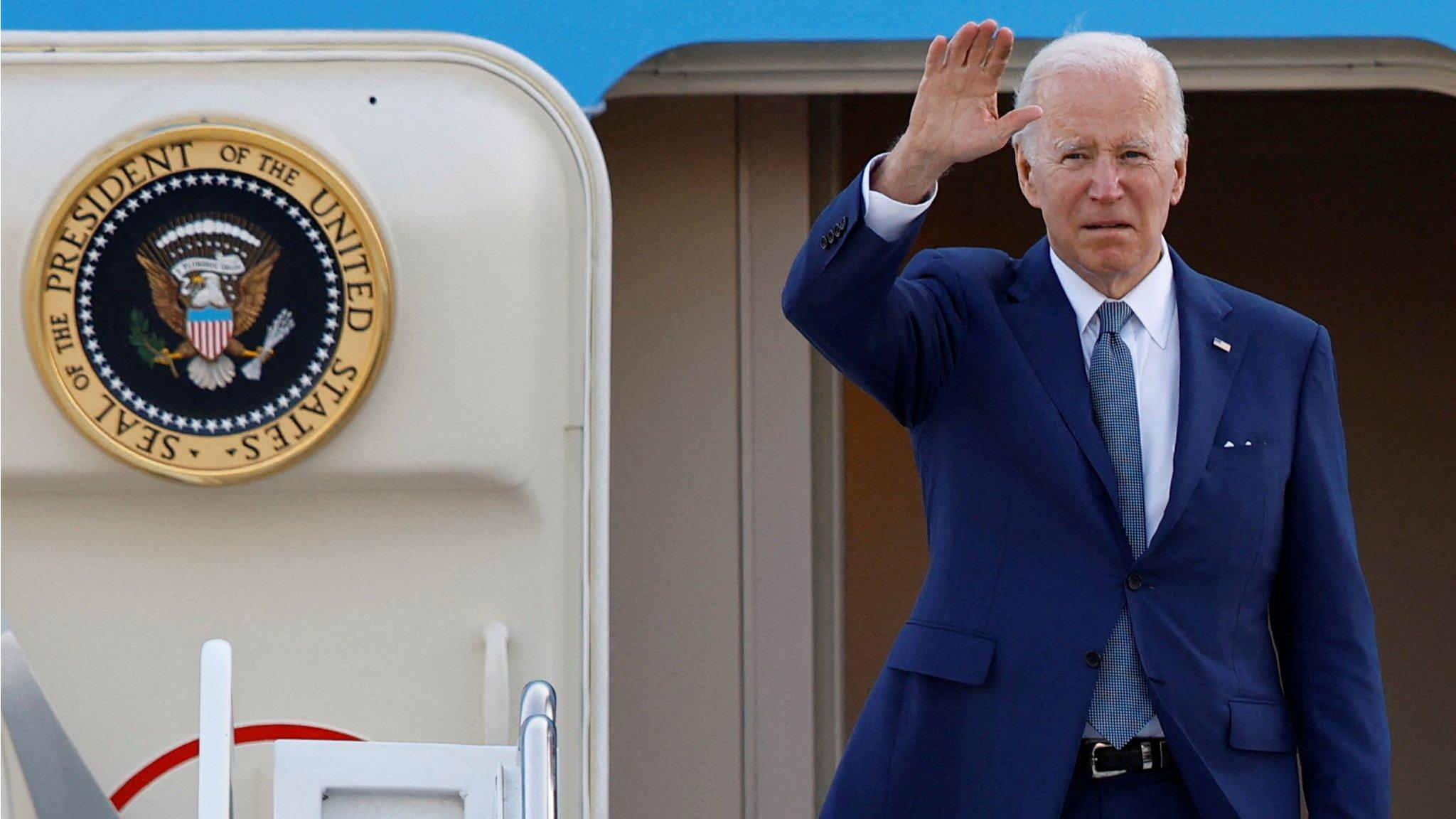Trapped in Saudi Arabia: A mother's fight to free her daughter
- Published
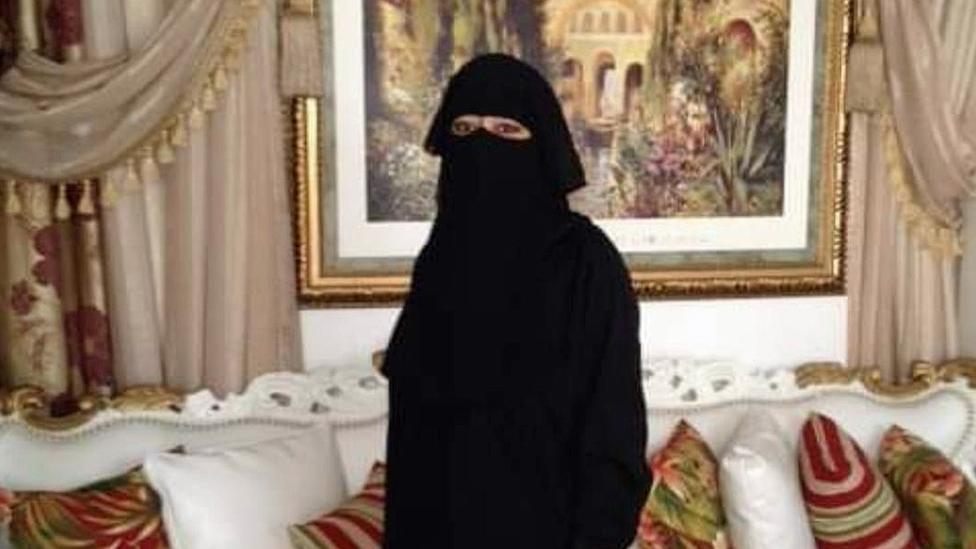
Carly Morris has been trying to take her daughter back to the US for three years
Mothers from the US, Canada, the UK and other western countries, are fighting to get their children out of Saudi Arabia after marriage breakdowns to Saudi nationals. A campaigner says many don't get the help they need from their own governments.

At first all seemed fine when American mum, Carly Morris, arrived in Saudi Arabia with her five year-old daughter, Tala. The child's Saudi father, whom she had married and later divorced during his seven-year scholarship in the USA, had persuaded her to come for a short visit. He had arranged a thirty-day visa for them both, so that his parents could meet their granddaughter for the first time.
Carly's holiday mood first took a knock on checking into the hotel her ex-husband had booked for her and Tala. Their room had no windows or internet access and her mobile phone would not work there. Though Carly says she soon had much more to worry about.
"The week after we arrived he asked for my passport and my birth certificate so that he could start processing her [Tala] exit permit. Though what he really did, I later found out, was he transferred her to a Saudi citizenship."
Dual citizenship is not recognised in Saudi Arabia so from this point on Tala, who had been born and raised in America, was considered a Saudi citizen only. This meant that under the country's male guardianship system she could not leave the country unless her Saudi father agreed. It was soon clear that this was the last thing he would do.
Carly says her Saudi ex-husband began collecting Tala each morning and not bringing her back until late in the evening. Left alone all day in her basic hotel room with little money she relied on boxes of food he would leave for her. Finally, after nearly two years of appealing to him to him take her their daughter home, Carly began writing to members of the US congress and others who she hoped might help her.
This, she says, angered her former husband.
"When he found that I was reaching out to people outside of the kingdom asking for help, he abducted my daughter for a period of two months. He and his family fled their home even. During that time he filed for custody of her."
In the papers filed as part of the custody proceedings, the father denied having abducted Tala.
After failing to get any constructive replies from American politicians, Carly wrote to the White House for help. She never heard back but her hopes nonetheless soared when the US President, Joe Biden, visited Riyadh in July. That effort too came to nothing, along she insists with appeals to US Embassy staff in Riyadh.
Back in America, Carly's increasingly worried mother, Denise White, has come to believe that Saudi economic and political importance means US diplomats are reluctant to act. The Gulf kingdom is one of the world's biggest oil producers, which gives it powerful political leverage, especially during the current energy crisis.
Speaking from her home in California, Mrs White says she is deeply concerned about her granddaughter's lack of education, after being told that Tala has not been to school once in the past three years.
Carly has also voiced fears about the psychological impact on Tala of being caught in the middle of a custody battle in a country far from her home.
"I can't get her to speak to anyone when social affairs people come here. She will not speak to any strangers. If I try to do video for my family she hides from the camera. I'm really worried about her socially at this point."
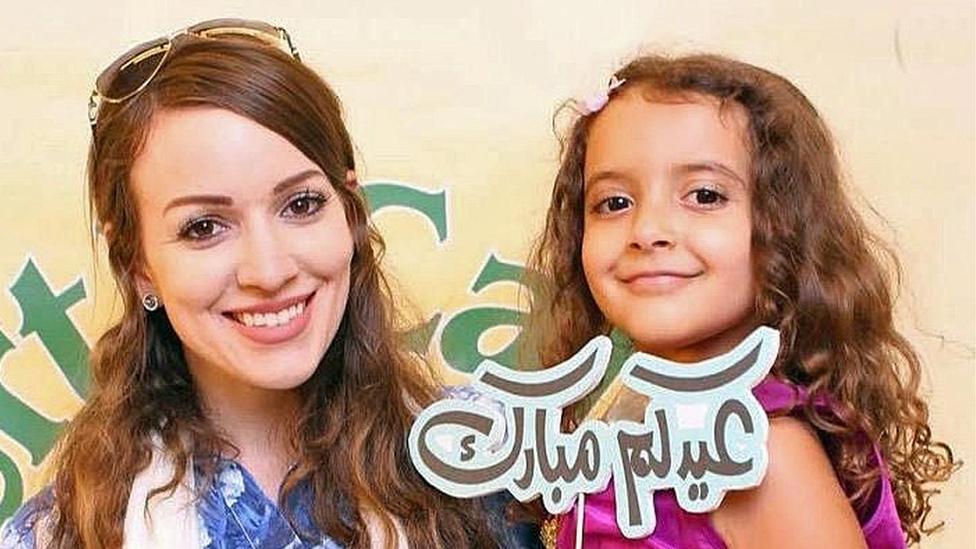
Bethany Alhaidari, from the Human Rights Foundation, says dozens of women are in the same situation as Carly
Statistics compiled by the US-based Human Rights Foundation show that Carly is one of nearly 50 American mothers fighting to get their children out of Saudi Arabia after marrying Saudi nationals. That is in addition to many from Canada, the UK and other Western countries.
The foundation's Bethany Alhaidari, who herself spent two years trying to get a Saudi exit visa for her daughter, says none have been successful over the past year. Many, she insists, simply don't get the help they need from their own governments.
"There tends to be a sentiment, even in the US government, of 'You did this to yourself, you should have known better'. So I feel like we face a wall a lot of times with that attitude."
The US embassy in Riyadh told the BBC that the welfare of US citizens was the "highest priority" of the state department and that the embassy was in regular contact with Carly and in touch with the Saudi government.
After a long court battle Carly was finally given custody of Tala, but told not to leave the Saudi city she is staying in, never mind the country itself. With no funds of her own, she says she had become a kind of prisoner within her own four walls.
"At that point I had gone two years not even stepping outside. I sat inside this hotel every single day. Not one person has seen my face… not one person has knocked on my door".
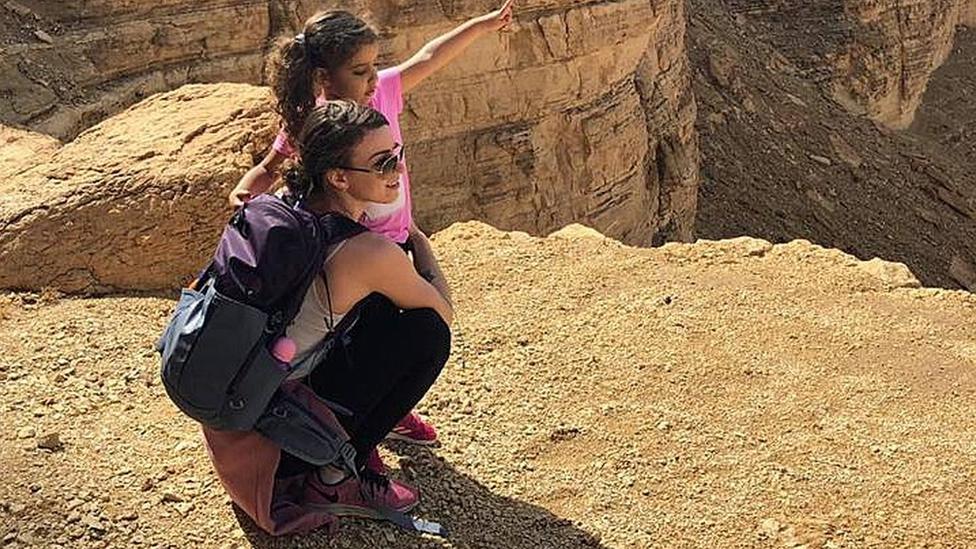
Bethany Alhaidari says it took her two years to get her daughter back
Since speaking out on this issue Carly has been accused by Saudi authorities of "disrupting public order", with the prosecution seeking a jail term as punishment.
She is also facing another even bigger new worry. Well before meeting her husband, Carly had converted to Islam and she insists her beliefs have never wavered since. But just days after she won back custody of her daughter, her ex-husband's father officially accused her of denouncing her faith and insulting Saudi Arabia and all Muslims. Still unable to bring her daughter back home she also now faces a potential death sentence, but pins much of the blame on herself.
"I was warned. Many people told me like, do not enter that country. If you enter you will never get your daughter back. And I didn't listen to the warnings… and I'm here in this situation three years later".
The Saudi authorities and Carly's ex-husband have been approached for comment but have not yet responded.
Related topics
- Published18 June 2020
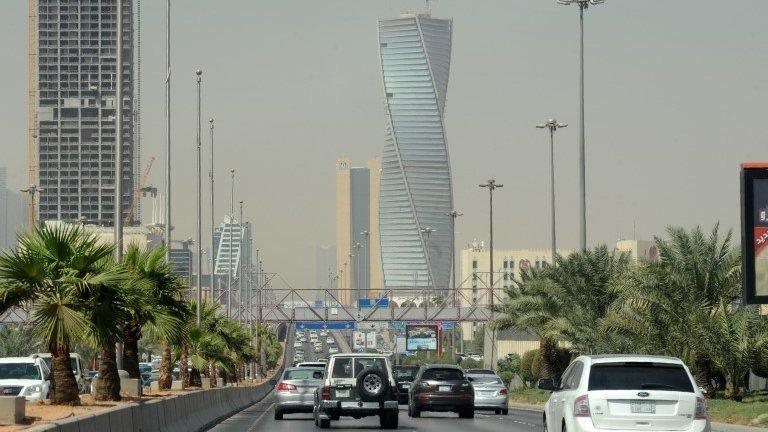
- Published31 August 2022

- Published13 July 2022
